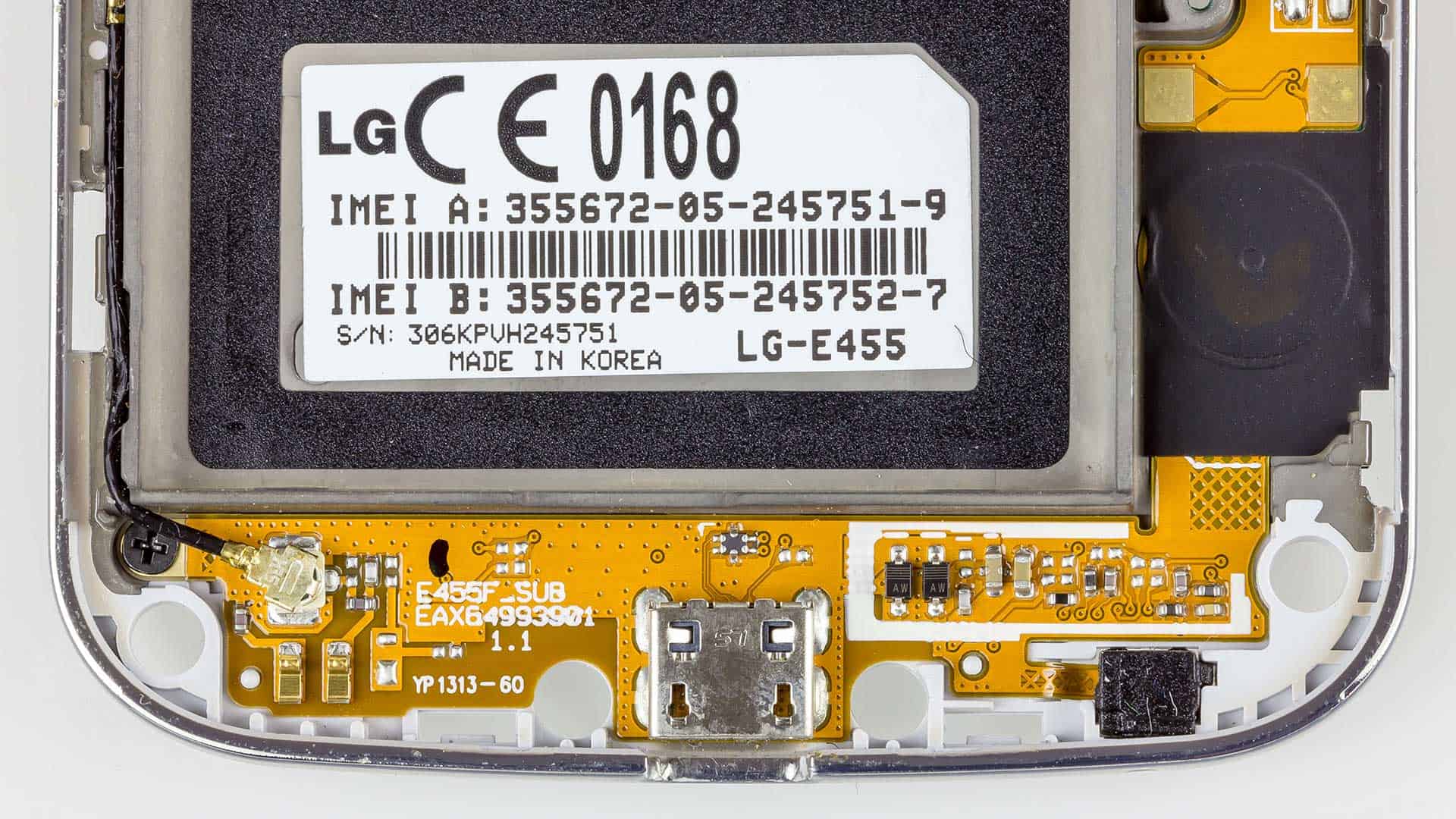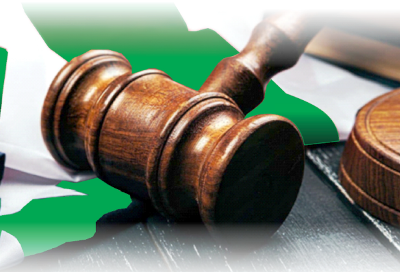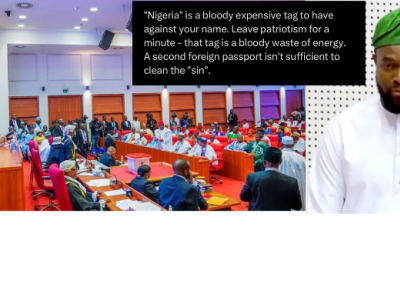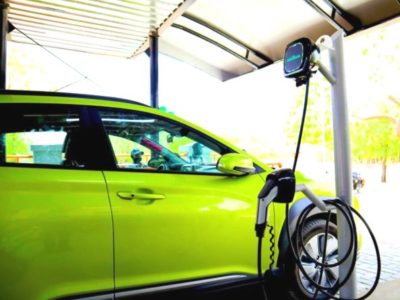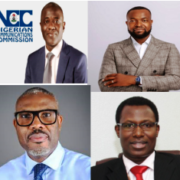Matters eRising with Olusegun Oruame
Let’s begin this conversation with just one plain truth: the Nigerian Communications Commission (NCC) does not need you to formally submit your International Mobile Equipment Identity (IMEI) in order to access it.
Your IMEI is automatically processed by a network operator or an internet service provider (ISP) once you logged on to that operator. The IMEI is akin to the unique ‘biometric’ feature of an equipment whether smartphone, laptop, or any mobile device. That unique biometric feature of that device is always automatically required before it can access the services of an operator – any operator.
The IMEI is a unique 15-digit number assigned to all cellular devices specifically, the Global System for Mobile (GSM) devices. On the other hand, the 14-digit MEID stands for Mobile Equipment Identifier and is similarly meant to identify a mobile device, in this case, the devices built around the CDMA (Code Division Multiple Access), the competing technology against GSM. The MEID is sometimes known as an Electronic Serial Number (ESN).
Because Nigeria has largely become a GSM market, it is understandable why the uproar is over IMEI.
All equipment must have IMEI. Mobile network operators use this IMEI serial number to identify devices that use their terrestrial cellular/mobile networks. For this reason, any device, mobile phone, modem/router or laptop that connects to a mobile network gets an IMEI number as well by default.
You can find out the IMEI of your mobile device by simply dialing *#06#.
IMEI miasma due to lack of information
It is glaring that the NCC was caught on the foul side of what has become the IMEI miasma due to lack of information and possibly the prevailing distrust or tension in and around the Nigerian polity.
The desire to leverage the IMEI platform against the rising incidence of phone thefts and ensure Nigeria is part of the global experience for more secure use of mobile devices predates the presidential nod for the Revised National Identity Policy for SIM Card Registration in 2021.
In fact, as far back as July 2009, the now defunct 234Next newspaper reported that the NCC had announced that it now has the capacity to render stolen phones useless on Nigerian mobile networks as it was launching a national anti-mobile phone theft initiative.
The reason was simple. By 2009, authorities were already alarmed by the frightening rise in phone thefts and other security challenges associated with Nigeria’s fledgling mobile industry.
GSMA IMEI Blacklisting Service
Besides, the country had come to appreciate the validity of becoming part of the GSMA IMEI Database in order to fully utilise the GSMA IMEI Blacklisting Service to protect legitimate phone users from security breaches and checkmate the growing illicit phone market.
The Global System for Mobile Association (GSMA) is the trade association for all GSM mobile phone operators, manufacturers and suppliers across the world. It enjoys strong national and international regulatory support as the common platform to address all GSM related issues.
Since 1987 when it was founded, the GSMA has led the global battle to blacklist stolen phones or devices reported by the owners as lost.
As at 2004, South Africa and Kenya were the only African countries where stolen phones can be blocked. But that number has since increased with Africa’s largest mobile market, Nigeria making moves since 2019 to put its acts together and ensure stolen phones are pulled off licensed networks.
The GSMA manages a global IMEI blacklisting service allowing its operator-members to share their own black lists (lists of devices that have been reported by their customers as lost or stolen) to a global database in order to identify and block stolen devices across multiple networks and national borders. Operators can choose to refuse service to an illicit device regardless of where in the world it ends up.
In addition, local government, law enforcement, businesses and even consumers in some markets, can access this data to help identify and avoid use of illegitimate devices. The service also helps tackle subscription and insurance frauds.
Two years ago, in 2019 when the NCC together with the Workplace of the Nationwide Safety Adviser (ONSA) established committees to draw up the blueprint to checkmate crimes associated with the mobile industry, the GSMA IMEI Blacklist Service had grown in influence.
RELATED
NCC To Nigerians: Your International Mobile Equipment Identity (IMEI) Number Not Required
NCC’s Unrelenting Battle To Protect Consumers Against Fake Mobile Devices
NCC, ONSA Set Up Committees To Combat Counterfeit Mobile Devices
Counterfeit ICT Products And The Need To Test-Certify Originals
There were already 124 operators participating in IMEI Blacklisting, across 44 countries, and by the end of Q3 2018 they had between them blacklisted more than 28 million devices over the previous two years. While the number of participating transnational operators in Africa majorly MTN and Orange had grown significantly to cover more countries on the continent, it is in Latin America, that the GSMA had recorded an unprecedented momentum.
The total number of Latin American countries on the GSMA IMEI Blacklisting Service had grown to about 52 operators across 18 countries, which significantly mean that almost all countries in the Americas were now fully protected within the GSMA IMEI Blacklisting Service.
So, what happened in May with Nigeria’s GSMA IMEI journey? Under-information or misrepresentation? Or was it just a victim of the social media manipulation as are many of government’s good intentions? Whatever is the case, it was glaring that there were information gaps which the NCC quickly moved to address.
NCC does not need phone subscribers to submit their IMEI
First, the telecom regulator made it clear that it does not require phone subscribers to submit the IMEI of their phones whether in July, 2021 or any other time. If the regulator ever needs the IMEI, it does not need to ask for it – it is perpetually facing the NCC through the mobile network operators (MNOs).
The Revised National Identity Policy for SIM Card Registration launched by President Muhammadu Buhari and uploaded on the NCC’s website was clearly misunderstood by the public within the context of the ongoing SIM-NIN linkage exercise.
The NCC’s plan to finally deploy a Device Management System (DMS) is not sudden and has been part of its overall strategy since 2009 to protect subscribers against phone theft, identify and enable the elimination of fake devices from the networks.
The regulator and operators do not need your permission or lack of it to get the DMS working. “The system will capture IMEI automatically without any requirement for subscribers to submit same,” said Director, Public Affairs, Dr. Ikechukwu Adinde in an official statement to tame the misinformation.
Nigeria does not need IMEI controversy; it needs to eliminate loopholes for criminals
The number of mobile devices operating worldwide is expected to reach 17.72 billion by 2024, an increase of 3.7 billion devices compared to 2020 levels.
As at 2017, GSMA Intelligence reported five billion unique mobile subscribers, about two-thirds of the global population were already connected to a mobile service. According to Statista, the number of unique global mobile connections is predicted to reach around 5.86 billion by 2025.
This offers both unprecedented economic opportunities and serious security challenges.
Nigeria needs to be part of the global community to have better secured networks and make theft of mobile devices unrewarding. The country does not need an IMEI controversy. What it needs is a frontal approach to eliminating loopholes for criminals to exploit. The DMS is long overdue. Whatever demerits may count against the DMS including privacy intrusion and surveillance fizzle out in the face of ever persistent dangers from criminals, whether cyber or of the mortar and brick extraction.
Unlawful surveillance and privacy intrusion can always be carried out by governments as technology expands in scope and usage beyond the confines of a DMS or any other platform.
IMAGE: Lost Phone


